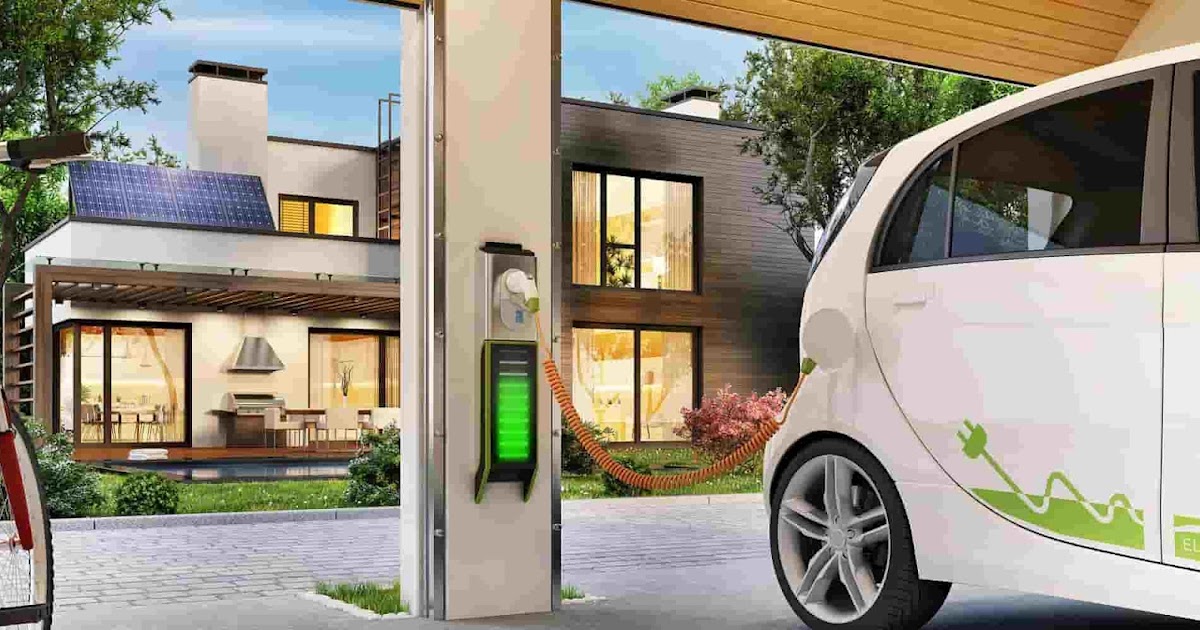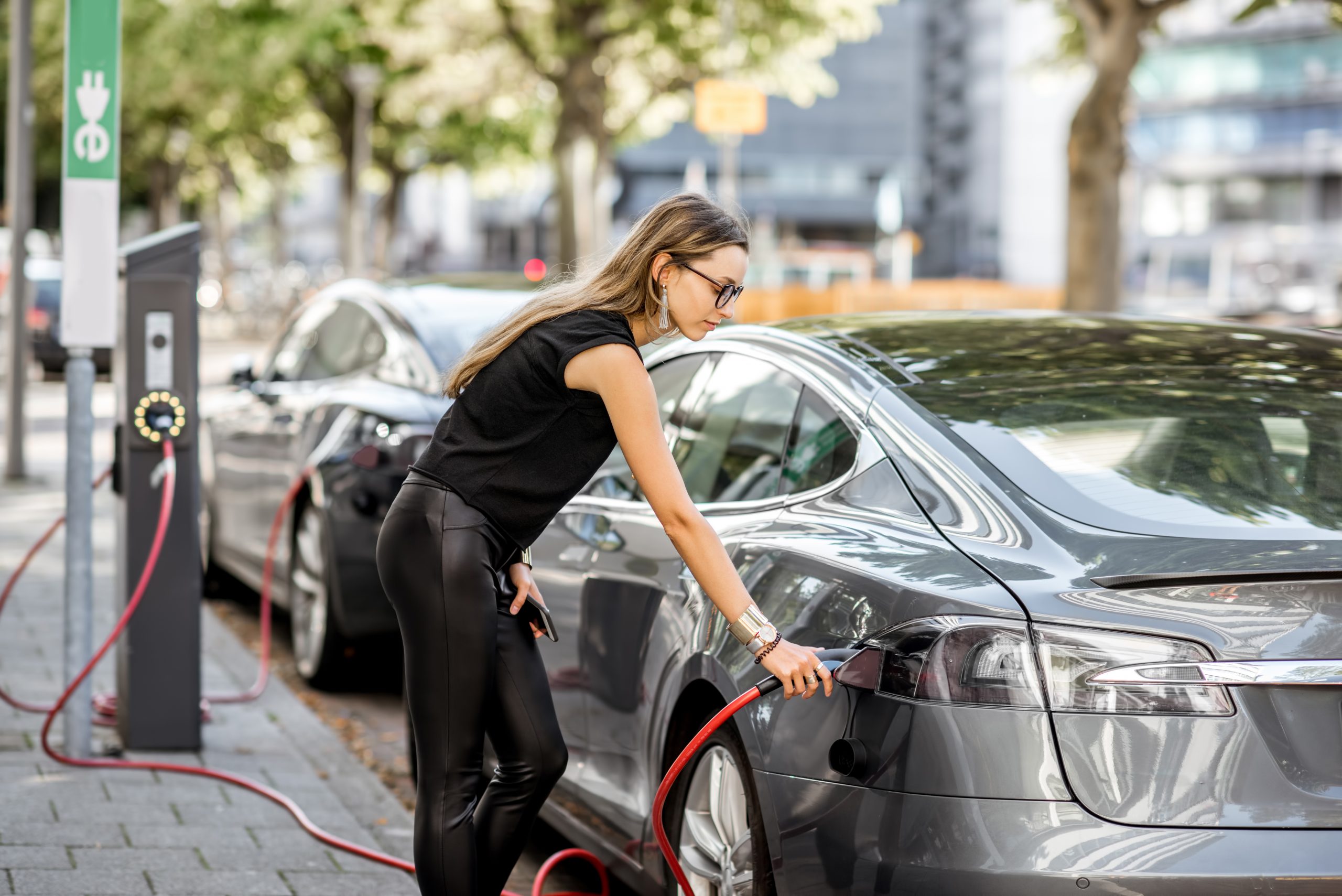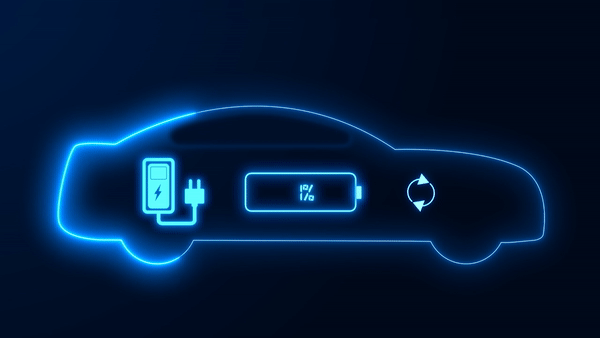Solar Panels to Charge Your Electric Car?

Clean energy has been breaking records in recent years, showing no signs of slowing down. According to market insights from the Solar Energy Industries Association in partnership with Wood Mackenzie, solar PV contributed to 43% of all new electricity-generating capacity additions through Q3 2020. Similarly, electric vehicles (EVs) experienced record growth in 2020, with a 43% increase despite a dip in overall auto sales. Even amid a global pandemic, these industries have demonstrated remarkable resilience as the demand for greener solutions continues to soar.
Synergy of Solar Energy and Electric Vehicles:
One reason for the parallel growth in these sectors is the complementary nature of solar energy and electric vehicles. Solar power can keep EVs running while offering a cleaner and more cost-effective solution. High-efficiency solar panels, renowned for generating more power in less space compared to conventional panels, exemplify this synergy. By harnessing solar power, homeowners can produce their own energy, reducing reliance on the electrical grid and leading to substantial savings on monthly utility bills.

Solar Battery:
For times when solar energy isn’t readily available, homeowners equipped with a solar battery can rely on their energy storage system to bridge the gap. With intelligent software, batteries offer various options for utilizing excess energy, providing versatility for homeowners who depend on electricity to power essential assets, including their family vehicles.
Optimization for EV Owners:
During consultations, our solar consultants often inquire whether homeowners own an electric vehicle. This enables our team to determine the optimal number of solar panels required not only to power the home but also to charge the EV efficiently.

Cost Calculations for EV Charging:
Instead of calculating miles per gallon, EV owners use a formula based on kilowatt-hours per 100 miles. This calculation, along with the average electricity cost and additional charges, highlights the eco-friendliness and cost-effectiveness of electric vehicles, particularly when charged with solar power.
Expansion Beyond Residential Settings:
The trend of utilizing solar energy to power electric vehicles extends beyond residential settings; auto dealerships are recognizing its value in maintaining a fleet of EVs. For example, Audi Seattle opted for a 235 kW SunPower solar system to offset 50% of the dealership’s electricity usage, ensuring its high-performance EVs remain charged and ready for test drives while reducing overhead costs sustainably.
Future Outlook:
As automotive manufacturers ramp up production of electric vehicle models, the demand for supporting infrastructure, such as solar power, is expected to surge. With solar energy offering an affordable, sustainable, and reliable solution, we anticipate more EV owners and dealerships making the switch to solar. It’s not just environmentally sound; it also makes financial sense.
Transition to EVs:
With nearly every major manufacturer now offering an EV model and sales nearly doubling in 2021, transitioning to electric vehicles offers significant benefits in terms of fuel costs and carbon emissions reduction.
Home vs. Public Charging:
Charging an EV at home is much more convenient and can be powered by rooftop solar, providing 100% clean energy.

Energy Consumption and Solar Panel Requirements:
An average EV owner driving about 14,000 miles per year would require about 4,666 kWh of additional energy annually, which can be offset by installing approximately 3.1 kW of solar panels, equivalent to eight to 12 panels.
Integration with Existing Solar Systems:
For homeowners with existing solar systems, adding more panels or incorporating a home battery can accommodate increased energy demands from EV charging.
Initial Solar Installation for EV Owners:
If you’re buying an EV and don’t have solar yet, going solar first can help control electricity costs associated with charging your EV at home, with the solar system being a highly efficient and scalable option.
Conclusion:
Powering EVs with solar energy presents a compelling opportunity to reduce carbon emissions and electricity costs. As transportation evolves toward cleaner options, solar power offers a sustainable solution for both residential and commercial applications, ensuring a greener and more cost-effective future.



